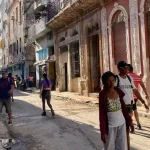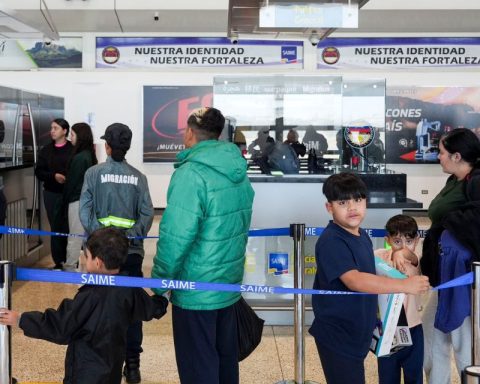This Monday, March 6 and Tuesday, March 7, more than 330,000 children will begin classes in Initial and Primary Education. In Secondary, as many adolescents will start between these days, while at the UTU level more than 80,000 will start. Total, Some 690,000 students will begin the school year this Monday and Tuesday.
However, it will not be just any start to classes.
In the High schools and UTU of Montevideo already announced a strike this Monday; the Association of Secondary Education Teachers (ADES) resolved this measure in the face of “a beastly cut in the educational budget” that is generating “overcrowded groups of students,” according to what he told The Observer the leader of ADES Montevideo (which brings together teachers from the capital) Javier Iglesias. In the rest of the departments the start of classes will be normal.
At the same time, This year the education reformthe flagship bastion of the government of Luis Lacalle Pou in terms of education.
In conflict
Secondary teachers plan to occupy some student centers this Monday. The union will be present to talk with students and parents, Iglesias said.
So, one of the institutes that will be occupied will be the lyceum 41; that is the same in which a police agent offered information to the former head of presidential custody, Alejandro Astesiano, to intervene the student and teacher phone numbers.
The Teachers claim that the educational transformation “causes uncertainty in its implementation”for which they “ask for answers” from the teaching authorities, according to ADES.
Within the framework of tomorrow’s strike, the Northeast Zonal carries out activities.
March 6 STOP 24 hours.
-We wanted to give you the best welcome but the authorities do not guarantee it-
.
Up those who fight!
.
.#adesmontevideo #phenapes #PITCNT pic.twitter.com/n1TmvBCBO9— ADES Montevideo (@ADES_Montevideo) March 5, 2023
However, for the president of the Codex, Robert Silva, the strike this Monday is “striking and very worrying.”
In an interview with Telemundo, the chief urged families for children and adolescents to go to classessince —according to what he explained to The Observer— “70% of teachers have not adhered to the strike measure” on other occasions.
Also, “if there are problems,” he urged unions to put them on the table; “We are willing to work it out,” she emphasized. “But don’t affect class days, don’t affect the rights of those who have less,” Silva said.
Transformation
At the level of the general population, almost half of the population (49%) agrees with the educational transformation, while 38% disapproves. However, a fairly similar percentage of society (45%) “heard something” about the reform, “but has no knowledge of the subject”, according to a survey carried out by Factum.
In contrast, 41% of those interviewed have heard of and are familiar with the subject.
At the teaching level, meanwhile, the educational reform is rejected by most teachers. In his opinion, the teachers were “mere spectators” of the process of elaboration of this proposal. According to the conclusions of the technical-teacher assemblies (ATD, the highest technical body that represents teachers), this transformation does not go to the bone of the problems.
The truth is that in several educational centers nationwide this initiative will begin to govern —except for 16-, that proposes, for example, that repetition be limited only to some specific degreesor what change the way assessments are graded.
At the political level, the ruling party had marked the need to defend this reform for avoid “false stories”, as indicated at the time by Vice President Beatriz Argimón. From the Broad Front was criticized this educational transformation, affirming that “does not solve real problems”.
The Minister of Education, Pablo da Silveira, criticized this Sunday the teachers of the capital for resolving a strike within the framework of the start of classes, pointing towards the transcendence of the educational transformation. “When it is remembered that in 2023 the curricular reform began to be applied that revitalized our teaching, it will also be remembered that the unions went on strike the first day of school,” the hierarch tweeted.
Silva, for his part, stressed that as of this Monday, the 6th, the Uruguayan educational system “begins a process of transformation and change” that society must “value as something very important and significant”as indicated to Telemundo.
Meanwhile, the president Luis Lacalle Pou lamented that “some choose to harm who we have to protect the most”, in reference to the strike at the beginning of classes; Thus, the hierarch maintained that the educational transformation “was discussed in all areas”; “some chose to contribute, others did not”Lacalle pointed out.
another strike
In addition to this Monday, education at a general level already has another scheduled strike on the near horizon: the March 8, for International Women’s Day.
The PIT-CNT joined the 8M International Women’s Strike, convened by the Feminist Intersocial, and empowered its affiliated unions to make the decision on whether only women will stop.
In this sense, the teachers’ union also resolved to stop this Wednesday.
The trade union center cannot decide that all its unions take this measure that day, because each one has its own autonomy. As explained by the general secretary of the PIT-CNT, Elbia Pereira, to The Observerwhich also belongs to the Uruguayan Federation of Teachers (FUM), women are “93% of teachers” in the country.
In this sense, if only men were left working it would be the equivalent of “a 24-hour strike”.
“A classmate can teach his third-year school group, but the children will not be able to eat, because the cook is a woman,” he exemplified.

















